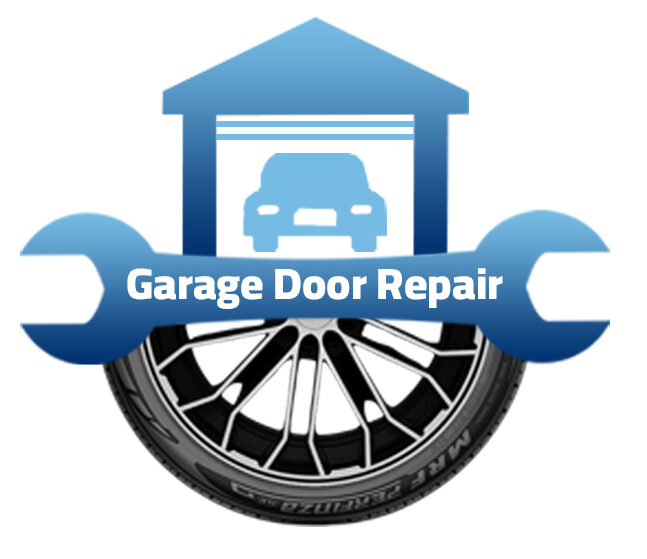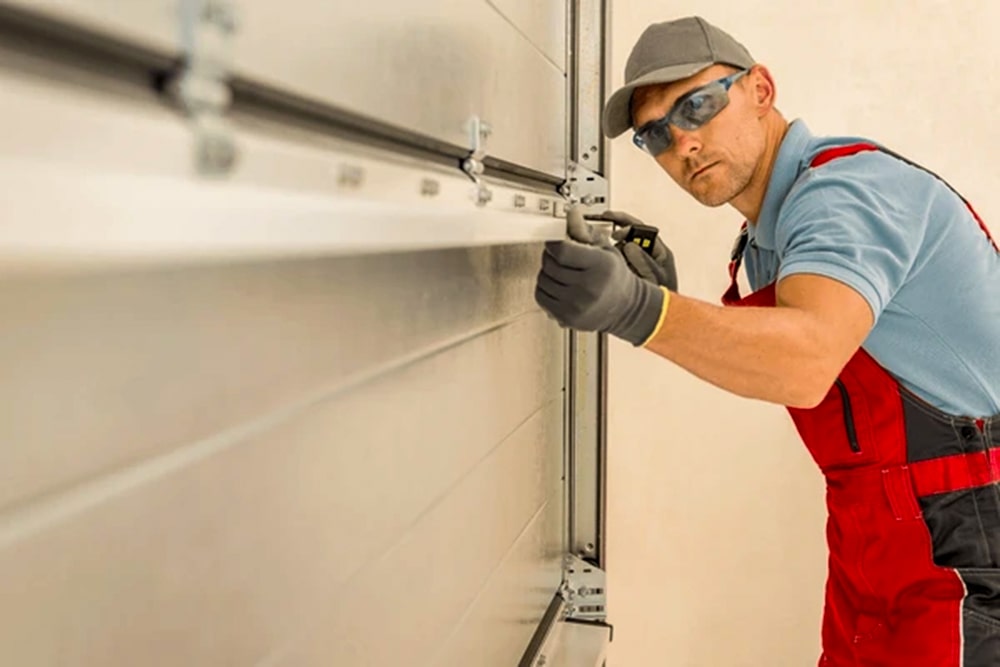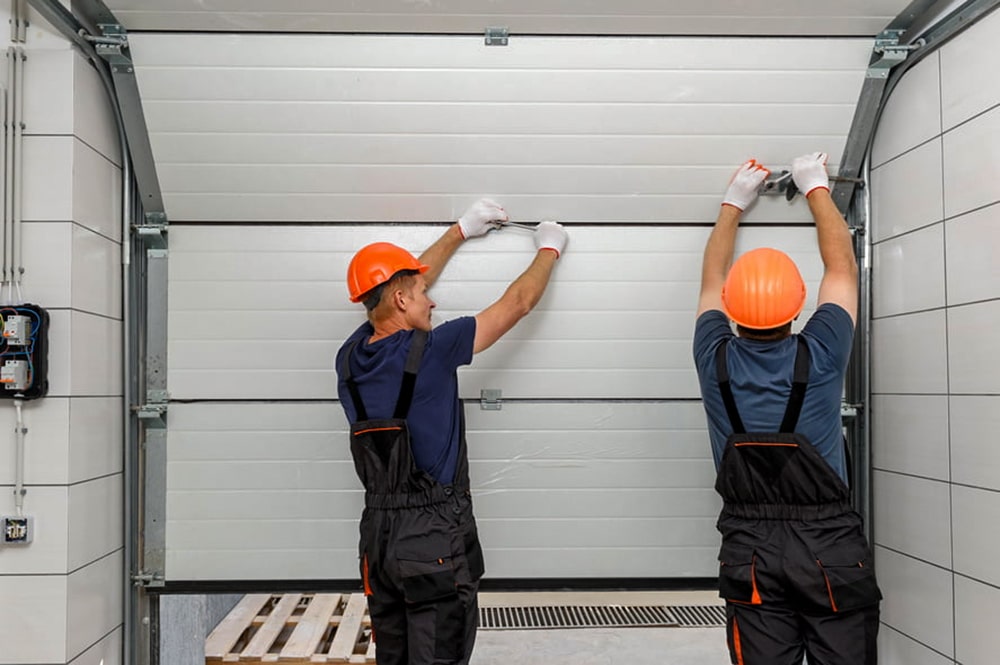A garage door is vital to most homes, offering security, convenience, and aesthetic appeal. However, nothing is more annoying than hearing a grinding noise when the garage door is closed. This sound is not just a nuisance—it can also indicate a problem that could lead to more severe issues if left unaddressed. Knowledge of the potential causes of these noises and how to fix them can help maintain the smooth operation of your garage door repair in castle rock.
Common Causes of Grinding Noise in Garage Doors
If your garage door is making a grinding noise when fully closed, several reasons exist.
- Misaligned Tracks
Garage doors run on metal tracks on either side, guiding them up and down. Over time, these tracks can become misaligned due to regular use, accidental bumps, or even weather-related changes. When the tracks are not aligned correctly, the door may scrape against the metal, resulting in a grinding noise. This misalignment can strain other components, leading to additional wear and tear.
- Worn or Damaged Rollers
Garage door rollers help the door glide smoothly along the tracks. These rollers can wear out, crack, or become damaged over time. When this happens, they no longer roll smoothly and may produce a grinding or squeaking noise. Metal rollers, in particular, can become noisy when they rust or lose their bearings. Nylon rollers are quieter but can still wear out, creating friction and noise.
- Loose or Damaged Hardware
The Hardware that holds your garage door together—such as bolts, nuts, and hinges—can become loose over time due to constant movement and vibration. When this Hardware becomes loose, it cause the door to rattle and create grinding noises as it moves up and down. Sometimes, the door may even jerk or shake, which can be noisy and potentially dangerous.
- Lack of Lubrication
A lack of proper lubrication is one of the most common causes of grinding noises in garage doors. Moving parts like hinges, rollers, and tracks require regular lubrication to function smoothly. Without it, these parts can grind against each other, leading to noise and excessive wear. Keeping these components well-lubricated is essential for maintaining a quiet and efficient garage door operation.
- Faulty Garage Door Opener
Often, the problem lies with the garage door opener itself. The opener’s motor and gears can wear out or break over time, especially if the door is incorrectly balanced. A worn-out motor or gear can produce grinding noises when the door reaches the fully closed position. This is usually a sign that the opener struggles to handle the door’s weight, which can cause more severe problems if not addressed.
Step-by-Step Diagnosis
To effectively solve the grinding noise issue, you’ll need to diagnose the exact problem. Here are some steps you can take to identify the cause:
- Visual Inspection of Tracks and Rollers
Begin inspecting the tracks and rollers. Check for any signs of fault, such as bent tracks, worn-out rollers, or debris obstructing the path. If the tracks are not straight or the rollers appear damaged, this could be the noise source.
- Checking Hardware for Looseness
Next, examine the bolts, nuts, and hinges that hold the garage door together. Use a wrench to tighten any loose components and ensure everything is secure. Consider replacing the affected parts if you notice any signs of wear or damage.
- Listening to Specific Noises
While operating the garage door, listen carefully to identify where the grinding noise is coming from. Is it more noticeable when the door reaches the bottom, or does it occur throughout its movement? Knowing this can help pinpoint whether the issue is with the rollers, tracks, or the opener.
- Testing the Garage Door Opener
Listen for unusual motor or gear assembly noises, which could indicate a problem. If the opener struggles or makes grinding sounds when the door is fully closed, it may be time for repair or replacement.
Solutions to Fix Grinding Noises
Once you’ve identified the cause, you can choose the appropriate solution. Here are some fixes based on common issues:
- Re-aligning Tracks
If misaligned tracks are the issue, you can try to re-align them. Please make sure they are parallel to each other and securely fastened to the wall. Be cautious not to over-tighten the bolts, which can cause further misalignment.
- Replacing Worn-Out Rollers
Opting for nylon rollers can be smart since they generally operate more quietly and need less upkeep. Be sure to select the appropriate size and type that matches your garage door model.
- Tightening or Replacing Hardware
Tightening bolts and nuts can often solve the problem of loose or damaged Hardware. If any components are visibly worn or damaged, replace them promptly to prevent further issues.
- Applying Proper Lubrication
Applying lubrication to the garage door’s moving parts can reduce grinding noises. To minimize friction and noise, use a silicone-based lubricant on the rollers, hinges, and tracks.
- Repairing or Replacing the Opener
If the garage door opener is not working well, you may need to repair or replace it. Check the manufacturer’s guide for troubleshooting tips, or consult a professional if unsure. Upgrading to a new opener can provide a quieter and more reliable operation.
Preventive Maintenance Tips
Regular maintenance can help prevent grinding noises and extend the life of your garage door. Here are some tips:
- Regular Lubrication Schedule: Keep a regular schedule for lubricating all moving parts to ensure smooth and quiet operation.
- Routine Checks for Wear and Tear: Inspect tracks, rollers, and Hardware monthly or quarterly to catch any issues early.
- Professional Inspections: Consider having a professional perform annual maintenance checks to ensure everything is in optimal condition.
When to Call a Professional
Some issues related to garage doors can be resolved yourself; others may require a professional’s expertise. If you notice persistent grinding noises or visible damage or are unsure how to proceed, it’s best to consult a garage door specialist. They have the tools and experience to handle repairs safely and effectively.
Conclusion
Addressing grinding noises in your garage door when fully closed is more than just about comfort; it’s about maintaining the safety and functionality of a vital part of your home. By understanding the reasons and solutions, you can take the necessary steps to keep your garage door running smoothly for years.




